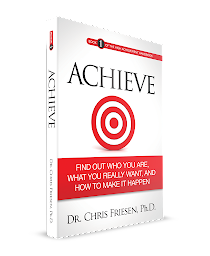Robert Plank: I have a quick question for you. Are you unsure of your life’s purpose? Are you afraid you’re living below your true potential. Do you have trouble staying motivated and focused on your goals? If any of those sound like you or they could sound like you or they do sound like you at times, we have Dr. Chris Frieson. He’s the author of the book Achieve: Find out who you are, what you really want, and how to make it happen. He’s going to be talking to us about all kinds of cool and fun mindset stuff. How are things, today Dr. Chris?
Chris Friesen: They’re very good. Thanks for having me on your show.
Robert Plank: Cool. I’m glad to have you here. Tell me about yourself and tell me about this book and what you do and about all the cool things you can do to help people here.
Chris Friesen: Sure, sure. I’m a psychologist. I’m trained as a clinical, forensic, and neuropsychological. These are fancy ways of saying trained to diagnose and assess people with emotional problems, criminal problems (of course that’s forensic), and neuropsychological is brain problems like Azheimers, brain injury, stroke. That kind of thing. A lot of my work these days is really focused on what I call high achievers. These are just people a lot of them are athletes, professional. Some Olympic, but also entrepreneurs, writers, academics. People who just want to take their game, their life, to the next level.
I do work with people and long story short I wrote this book you just described which is the first part of the High Achievement handbook. There’s going to be three actual books in the series. This one is really about exactly what you said, finding out who you are, what’s really important to you, what you really want, and to make sure that what you do with your life on the day to day basis is actually the right thing for you. Then, how to make it happen on a day to day basis in terms of being productive, efficient, that kind of thing.
Robert Plank: That’s cool. I think the people that we’re making this show for are online entrepreneurs and I keep thinking back to when I had the day job mindset and now I have the entrepreneur mindset and it seems like, let me know your thoughts on this, but it feels like to me there’s a lot of people who haven’t quite woken up, yet. A lot of people are at their day job doing the nine to five kind of stuff and it seems like a lot of us have so many things holding us back, but we’re not yet really awake.
I think that a few years ago when I made the jump from the day job lifestyle to the entrepreneur lifestyle I had to almost relearn everything and the big thing that all these things that have previously been holding me back, they were still there, but I didn’t realize they were there and it seems almost like making the jump and quitting the day job and starting a business and taking bigger risks brought all these little things in hiding to light. Does that makes sense?
Chris Friesen: Yeah. For sure. When we have day jobs, and I’m actually just like you in a lot of ways. I worked in a hospital settings. I worked in a prison. That kind of thing. When I broke off and have been working on my own for about six years, now just completely on my own as a consultant I guess you would call it. It’s just like an entrepreneur in the professional psychology coaching or sports psychology realm. When we’re working for companies, their very structured. We have to be there at a particular time. We have very set duties to complete and tasks to do, but when we work for ourselves it’s really us having to motivate ourselves, having to stay on task and to be efficient and productive.
As much as we often daydream when we’re at our old jobs, when we were at our day jobs, about how great we could be if we worked on our own there’s a whole bunch of challenges that come up because one of the main issues is self motivation. Also self doubt. There’s anxiety over sometimes money comes in a lot. You get lots of work and sometimes you’re not getting a lot of work so your income kind of goes up and down as well. There’s a whole bunch of challenges associated with that and a whole bunch of things you can do as well to help yourself cope with those sorts of things.
Robert Plank: Like what?
Chris Friesen: One thing is… I’ll give you one quick example of a strategy you can do. One thing that happens when you work from home, this has to do with everything. This has to do with the Olympic athletes I work with. This has to do with the… It doesn’t matter. This applies across the board. Basically, when you have a hard time getting yourself to do something you know you should be doing, in other words you’re procrastinating, you’re getting up and you’re looking at email and you’re never really getting down to the project you wanted to work on. It’s call the five minute rule. What you do is this.
You tell yourself, you make a deal. You say, “Listen. I’m going to do the activity or the project or whatever. I’m going to work on my website, whatever it may be for five minutes and then I’m going to decide if I really want to do it because we tend to have it backwards when it comes to writing. People who are writing books, for example. People who have to exercise. People who have to work on a project from home, for example. We often have these negative predictions about how annoying it’s going to be when you actually start doing it, or that you have to be in the zone. You have to be in the right mindset to start working. It’s actually the opposite.
You want to start doing something and then decide because our predictions of how difficult something is going to be are often way off base. The trick is simply this, you start the activity, put your timer on for five or ten minutes. Whatever you want to do. In the book I say five minutes. Then, you decide, “Is it as bad as I thought?” If it’s anywhere near as bad as you thought, give yourself 100% permission to stop. The research shows that when you do this 98% of the time you basically continue and it’s never as bad as you predicted. That’s the hardest thing to do is to get started. That hump to get yourself to the desk to start working. That’s one real quick example of one strategy you can do that will help you be more productive.
Robert Plank: I love that. What that reminds me of when my sister was in college, she would always procrastinate writing term papers. At one point I would see her sit at the computer and just start typing and open up a word document and she would literally just start typing anything, even like “I’m typing on the computer. I don’t feel like writing my term paper, but I’m typing, typing, typing” and stream of consciousness out and then after about a minute or two, she would kind of get bored of it and start writing the actual term paper. Then minutes in, guess what? Now, she feels like doing it once she actually picked up that speed I guess.
Chris Friesen: Yes. That’s exactly true. There’s an interesting thing. There’s something in my next book I might call it the ten minute rule, but it’s the opposite problem when people have a hard time stopping themselves from doing things they know they shouldn’t do. This could be like when I work with athletes trying to make weight for a sports competition. You have to stay to a strict diet. For example they’ll see some sort of food that’s off the list and they want to eat it. When there’s something like that, what you do is you put your timer on for ten minutes. You don’t indulge in the activity.
Wait five to ten minutes and then decide whether really need to eat that donut, or for example, you feel the urge to check your email and you say, “I’m going to put my timer on for ten minutes because I have this urge right now to check. I’m going to wait ten minutes to see if I really need to check email or check Facebook or something like that. These are very good strategies; there’s research to back them up, that are really effective to helping you stay on task. In other words accomplish your actual goals because often we’ll go at the end of the day and you’ll feel like I didn’t really do a lot of the things I thought I would do. I had the entire day to work and I was not as productive as I thought and strategies like this can be really helpful to keep you on track.
Robert Plank: I like a couple of things about that. I like that first of all it almost seems like you switched the usual behavior pattern. Usually the thing that I should be doing I keep putting off ten minutes, putting it off ten minutes. Things like that. Then, the thing that I shouldn’t be doing, I end up just doing it on impulse, like a lot of these bad decisions. Eating the wrong thing or I’m just going to check my phone really quick. I’m just going to check my email really quick, but like you said if you waited ten minutes to do that bad thing, now you’re properly configured, I guess.
Chris Friesen: Yeah. Yeah that’s the biggest hurdle especially for people who work from home like writers and a lot of entrepreneurs, is just that productivity issue. A lot of it has to do with structuring our environment as well. There’s examples of famous writers who basically disconnect their computer from the internet altogether or they may have a different computer in a different room, that the only thing they do actually work on their book. If you’re doing an online business, you can’t be disconnected from the internet, but having things open in your browser; having quick buttons for Facebook, Twitter, or your favorite newsfeed easily accessible is going to spell disaster when it comes to your productivity.
You want to actually have those things removed. Alerts on your smartphone or your tablets from social media or things that are not pertaining to work should be turned off. I know with myself the iPhone has a do not disturb function. I’m not sure if it’s been there the whole time, but I only discovered it relatively recently. When I get down to work, for example I’m working on the second book of this series, I turn that thing off. If someone texts me, it’ll still show the text, but it won’t buzz. Even though it’s on just vibrate because it doesn’t matter if you can hear it or it’s vibrating, it doesn’t make any difference. If it vibrates, you’re going to look over at it. We know from research that every time you get distracted from the task you’re working on; let’s say you’re working on content of your website, you’re productivity goes way down.
Any distractions whether it’s your home phone ringing, your cell phone ringing, text alerts, anything popping up on your computer, they all distract you and as we all know, now there are just hundreds of possible things that will distract you. You’ve got to really get to know your phone and computer settings and turn all those alerts off. They are not helping you. They feel really good. In the brain, what happens, we have a dopamine response which makes you want to seek out rewards and basically you want to check it because it feels good. It feels like the right thing to do. That’s why people have discovered that having these alerts and everything like that are really helpful for their products because it does distract you. It makes you think about their products and about Facebook or whatever it may be, but they’re actually destroying your potential. They’re actually holding you back. If people start to do these things, you’re going to start to perform much closer to your real potential.
Robert Plank: It’s so funny you bring that up about notifications and things like that because it’s one of those things where at least with me it seems like it creeps in. With the phone, I for sure turn off the pop ups for email, but then sometimes I noticed everyday I’ll just happen to have the Facebook tab left open and I think it might just be because I’ve slowly become addicted, not to drugs, but to Facebook. Is there a trick or a secret to that. I know that you mentioned a lot of people who work on their websites and things like that and I just noticed that it seems harmless until I see other people I know have a million tabs on or they can’t even seem to hold a conversation or put together a complete sentence because halfway through the sentence, something else pops up. Is there a secret to just getting unaddicted to all the notifications or is it just a matter of having those rules and just sticking with it for a few days? What’s the secret there?
Chris Friesen: Yeah, a couple of things. One thing is to control your environment. In other words use the do not disturb. Like you said you want to have rules. For example, I am going to be working from nine to noon, I’m making it up, and the rule is I am not checking my email. I am not checking Facebook. I’m putting the do not disturb on. You want to make it a rule. Once you make it a rule in your head, you’re more likely to follow it. You want to have something pretty solid. It’s not like, “I’m going to try not to look so much.” That’s not going to work. You have to get in touch, also with your values. What’s your purpose? What’s your mission? What’s really important to you?
Is it really just to be entertained with Facebook and that kind of thing or is it to do the best work you can do? I’m not like a Luddite. I’m not suggesting you get rid of technology. I have all the gadgets and everything and I love it, but you want to control it because the reality is technology is now controlling us, but we need to control the technology. What we want to do is say, “Look. I love checking Facebook. I feel good. It’s fun. It’s interesting. I want to know what’s going on,” but use it as a reward. You say, “Actually, at noon I’m going to actually check Facebook, but I’m not allowed to check Facebook or any of these things until I’ve done a certain amount of work; one hour, two hours, three hours.” You want to have that pretty solid as a rule in your mind.
It is definitely hurting our abilities. Lots of research how distractions hurt our ability to stay focused and be productive and how much we can achieve in a particular amount of time. There’s some research. I’m forgetting all the details now, but basically just a quick little distraction takes you basically five minutes to get back to where you were in terms of the mindset or whatever you were working on. That on its own is just slowing you down. You’re just wasting time. You can always check those things later. You want to control that. There’s actually a strategy that can help you be better able to resist distractions.
It’s actually mindfulness meditation. It sounds kind of strange. There’s no religious connotations. This is really just a form of brain training. What you do is very simple. Between five and thirty minutes, so you start off low, per day. Five to thirty minutes per day you sit in a chair. Turn off all your gadgets. No distractions. You close your eyes and you focus all of your attention on your breathing. As soon as your mind wanders, “Oh. I’ve got to call Joe later today” or “This is so boring.” You’ll have these thoughts. You allow yourself to have these thoughts, but you do something called you diffuse from these thoughts. What you do is you say, “I’m having the thought that this is boring. I am not my thoughts. I have all kinds of thoughts.” Then you return your attention back to your breathing. You don’t control your breathing. You’re just focusing on it.
For example, how it’s a bit colder when it goes in your nose and a bit warmer when it comes out. How your stomach moves or your chest moves a little bit as you breathe. Your mind’s going to constantly go all over the place, but there is FMRI research, which is a fancy imaging thing for your brain, research that shows the pre-frontal cortex (a part of the frontal lobe) actually thickens, measurably thickens after a few weeks of doing this and that part of the brain controls your ability to stay focused, to not get overwhelmed with negative emotions, and to stay on task and stay focused on whatever goal you’re focusing on at the moment. That’s an exercise you can do that’ll improve your life in many different ways. There’s a lot of research on that, now to help you be better able to resist distractions when you’re trying to work. Those are a couple of examples. I have more, of course, but those are a couple of examples.
Robert Plank: Cool. I really like that. Out of all these things that there are to do to fix distractions, for example, like you said don’t check email in the morning or do these things to train your brain to be better or do this mindful meditation. I keep thinking back to when I was a lot younger and I wrote a lot of that stuff off as hippie sort of stuff. Voodoo almost. Now, it’s become… People who teach the self help or the mindset kind of stuff or from the little techniques that I do, it seems it’s more scientifically accepted and even a lot of the examples that you gave there are not just made up stuff, but actually scientifically backed from studies and things like that.
What I like about the call so far and the things that you’ve shared with us so far is that there’s lots of little exercises, so it seems like people who are only sort of off track or their whole time management or their whole life, their whole mindset is a disaster either way, they don’t have to make any of these huge drastic changes if they don’t want to. They can just apply some of your little exercises. So far what I like is you said that the five minute rule is great for procrastination. Instead of having to decide if you’re in the moment or in the zone or whatever because you’re not yet, just do it for five minutes and then after that five minute period decide if the thing that you imagined you were about to do if it was actually as bad as doing it and then the other thing.
The ten minute rule where if there’s a bad habit you do that you shouldn’t do then wait ten minutes and then decide when you actually are in a better mindset. It sounds like having a good structure for the things that you do is good. If you just have some sort of project you need to do where you’re unplugged then have a special room or special computer or special area or something where you can just do it, and I liked also when you were talking about especially when people are just getting distracted in general, they’re getting away from their purpose and their why and their mission and their values and stuff like that. So far lots of cool little helpful exercises that you can just plug in. Can we talk about something big and huge. Out of all the people you see that you’re helping with your training and stuff, what do you see the number one mistake everyone’s making that you can help them with?
Chris Friesen: If there is one tip or one thing that I’ve noticed and research supports this. There’s one thing that differentiates the most successful people from the least successful people, whatever that means; in athletics, entrepreneurship, or whatever it is. The most successful people live their lives and make their day to day and moment to moment decisions based on their values, their purpose and goals, not based on their moods. Not based on their immediate circumstances. Not based on their energy levels. Obviously you can tell this is a summary statement of what we just talked about. That is the global thing. A lot of people get caught up in the moment with negative emotions and that kind of thing and they get thrown off. They start to live their lives in a reactionary mode as opposed to a proactive mode.
Once you figure out, and my book is all about figuring out your personality, your why, and your values. As you can tell I like to give tips and exercises that’ll help people do this easily. Then, you basically plan your life around those things. One of the worst things people do is to make their to do list on the day of. The morning of they’ll write down, “What have I got to do today?” You’re actually better off making your to do list the night before. Of course, this is all informed. Your to do list is all informed by you’re going to come up with your long term goals. In other words I call them retirement or old age goals, all the way down to your ten year goals, your five year goals, your one year goal. I have all these sheets in my book to fill these out.
You want to live your life based on trying to achieve those big goals. These are often, not necessarily making a million dollars, that could be a goal. It could also be a value based goal like being a good person. I want people to think I was a helpful, caring person and not a selfish person. There’s a whole structure to do this in the book, but one thing you do is you make your to do list for tomorrow. First of all, you make a weekly thing. Every Sunday you think what is the goal for this week and you kind of figure out what can I focus on because you’re going to have a better idea of what’s happening in the week. On Tuesday I have a doctors appointment or I have to call my web designer on Wednesday.
You have those sort of things on your schedule. You have them planned in. They can’t really be moved. You plan around that the stuff that actually… Steven Covey in his book The Seven Habits of Highly Effective People talks about this. He calls them quadrant two activities. These are activities or things you need to do that are not urgent, but they’re very important. For example, exercising is not urgent, but it’s important. It’s going to make you better at what you do. It’s going to make you smarter. It’s going to actually increase blood flow to the brain and all sorts of good things. It improves mood.
Let’s say working on a new product that maybe you have an existing product that needs to be cared for, but the new product is not urgent, necessarily, but it is important. You’ve got to fit those not urgent, but important tasks into the week. Then, for example you don’t make a to do list the morning of. You make it the night before. After you’ve done all of your work and you’re about to close down for the day, you basically go and make your to do list for tomorrow and you use that to guide you. What happens is if you make a to do list in the morning after you’ve checked email all sorts of stuff is going to come and distract you from all sorts of emails that seem urgent, but they’re not really important. Other things that are just going to pop up.
You want to have a little bit of perspective by making the to do list the night before. The feeling, there’s a neurological response, there’s a closure feeling when you check off things on your to do list. It makes you feel actually competent and productive. That helps you keep going because you feel like you’ve accomplished things. In my book I have a section called Is the To Do List Dead? I say it’s not dead. It’s actually really important. You want to still have to do lists. Having your global why always in perspective; knowing what you’re bigger, longer term goals are and reviewing them regularly.
It’s going to help you keep on track with what’s important to you, what you should be working on, and not get distracted by the minutiae of the world. We’ve never had this problem to this extent in human history with like we said earlier, from text to people call you. Anyone can contact anyone at any point. We get hundreds of emails a day, now. It’s complete distraction and it’s making people unbelievable unproductive and not feeling fulfilled because they don’t feel in control. Your life is being dictated by everyone else it seems.
Robert Plank: Right. It sounds like from everything you have to say it’s nothing super crazy; nothing super ridiculous. It sounds like a new slant on a lot of things that people know they should be doing, but it maybe haven’t been doing, but because you have all these tips and exercises it takes this thing that people know they should have a to do list. They should make better decisions as opposed to just making things impulsively. It’s cool that everything you’ve talked to us about, today is that it’s just a new slant on things that should work a certain way, but now because you have these little tidbits, now they’re actually working the way they should. You’re mentioning your book and there’s some cool exercises and things like that in your Achieve Book. Could you tell us a little bit about that?
Chris Friesen: Yeah. A lot of the stuff I’ve talked about is in the book. Pretty much everything except the ten minute rule. That’s going to go in the next book. I kind of discovered this after the fact; after I wrote the first book. It should have gone in the first book. Another thing that the book really focuses on that makes it different from a lot of other self help books is getting to know your personality. I have a big affinity to personality because my undergrad thesis, my masters thesis, my PhD thesis were all based about normal personality, what it predicts and that kind of thing. Long story short, personality psychologists from around the world have basically determined that there are five global personality dimensions that we all differ on and I can go through all of them, but I’ll go through a key one that may be relevant to a lot of listeners.
They’ll be familiar with this. One is extroversion versus introversion. We hear this. There’s books about introversion. Unfortunately a lot of the books out there on introversion are actually mixing up a number of these global fiver personality dimensions into introversion which is not really in line with research. People who are extroverted are just like we think. They’re more outgoing. They’re more into exciting things. They’re attracted to excitement. Let’s see what else I can say about that. They tend to have higher levels of energy. They experience a lot more positive and enthusiastic emotions. People who are introverted tend to be a bit more reserved, a bit more serious. T
they’re not as highly energetic. They’re not too fond of focusing on a lot more excitement and stimulation. They like working alone or one one. Knowing where you fall on this dimension of extroversion versus introversion is very useful. For example, people who are introverted from a brain perspective, it really has to do with your tolerance for external stimulation. It’s not just a social thing. People who are introverted, their brains are actually revving a little bit higher. EEG studies show this. Their brains are revving a little bit faster. It’s not anxiety. It’s just their brains rev faster. What this means is they hit their red line a bit more quickly than an extrovert who’s brains are revving a lot slower.
What this means is when you have external stimulation and you’re introverted, you’re going to only be able to tolerate so much stimulation whether it’s social, whether it’s being in Las Vegas. It could be sounds or music. It could be working in an open concept office environment with all the noise and distractions. Think of like a newsroom environment. People who are introverted are going to get overstimulated very quickly and if you know that about yourself, what it means is you can still handle those, but you can only do it in short spurts and you have to have recovery times where you’re alone or you’re relaxing and are not being stimulated. People who are extroverted are they opposite.
They actually feed of all that stimulation and they feel really abnormal, which manifests in being bored when they’re working alone. They need to seek out lots of stimulation whether it’s social or otherwise. A lot of people work from home. It doesn’t mean everyone who works from home is introverted. If you tend to be on the higher side of what I described, in other words you’re extroverted, you’re going to just have to make sure that you seek out experiences that are exciting or socially stimulating whether it’s you do some hardcore rock climbing after work or during your lunch hour or you spend times with friends and talk to people and do that.
You have to think of this as a need and if you don’t get that extroverted needs met, you’re going to actually feel uncomfortable, unfulfilled, unhappy. Vice versa, if you’re really introverted, working from home is usually ideal and you realize that you’re going to need… If you have to do stuff where you have to meet lots of people and do lots of meeting, you’re going to get really exhausted really quickly and knowing that about yourself is going to be helpful to be able to predict what you can handle and how to perform at your peak.
Robert Plank: That’s kind of interesting because as opposed to just the natural tendency of people is to think in this situation I act this way or I tend to be more like this, but it sounds like once they figure out where do they actually fall in these tests and things like that, then they can actually make logic based decisions. They can say, “I need an exciting break. I need to go rock climbing, ” or “I’m fine being in this environment.” It’s almost kind of spooky. It’s almost like pulling under the hood and figuring out what type of engine you have or something.
Chris Friesen: Yeah. When I talk about these, this is the very first section I talk about when it comes to achieving your main goals for you. You’ve really got to know yourself. This is the hardware. Your personality is your hardware. Fifty percent, so 5-0 percent is genetically inherited. It’s inherited from obviously your parents and the other 50% due to your environment or experiences you’ve had in life. More so in early life and the first twenty years of your life and less so as an adult. Your personality can still change. Something to keep in mind is you don’t want to label yourself too much and say, “Well, I’m an introvert. I can’t do those sorts of things,” or “I’m an extrovert. I can’t work alone or do those sorts of things.”
The research doesn’t really support that. It’s really about how much you can handle of each of those things. People who are naturally, biologically introverted can still act extroverted and they still can have lots of good social skills. It’s just that they can only handle it for certain amounts of time before they just feel over stimulated and it’s just not fun. We do live in an extrovertedly biased world where extroverts are considered to be the ideal personality. The part where you fall on that personality dimension is supposed to be ideal, but of course the introvert books out there, which are not perfectly accurate unfortunately, but I do agree with the idea that introverts do have a lot to offer, but just knowing where you stand you can help predict where you’re going to succeed and where you’re going to potentially fail.
A lot of people learn this through work. They’ll be like, “I worked in a library and I loved it,” or “I worked in sales at a Best Buy where I had to talk to customers all day and it was loud and I loved that or I hated that.” Often these have to do with our brain’s hardware in terms of introversion and extroversion. Just knowing that about yourself is really important, but don’t take it as suggesting that you can’t do the opposite. You can do the opposite like an introvert can act like an extrovert for example. It’s just that you can do it only for a limited amount of time before you start to feel burnt out. You want to live your life congruent with your natural personality and you’ve got to know that about yourself to be able to perform at your peak, basically perform at your best and be as productive as you can and just be happy and satisfied with what you’re doing.
Robert Plank: That’s what we all want, right?
Chris Friesen: Yeah.
Robert Plank: I think that’s a really good message and I like everything you have to say. Could you tell everyone one more time what the name of the book is, where they can get the book, and where they can find out anything else you have for sale or anything else more about you?
Chris Friesen: The book is on Amazon in paperback. It’s on Kindle and it’s on Audible as well. The Audible came out relatively recently and I’ve gotten lots of good feedback on that. I didn’t narrate it myself. I got a professional narrator, voice actor guy who does Fox commercials. He’s really great. His name’s Chris A. Bell. The book is called Achieve. The subtitle is Find out who you are, what you really want, and how to make it happen. My website is FriesenPerformance.com. I have a newsletter and I give tips.
One of my podcasts for example, I send it out. I’m on Twitter, @friesonperform and I’m on Facebook. Look up Frieson Sport and Performance Psychology. I believe you can find my Facebook page. I post a lot of articles either written by myself or podcasts I’ve been on or a lot of articles on things like I’ve talked about. Tips for being more productive, to be more successful. Stuff about personality. Stuff about the brain that are really applicable, that have an applied message, not just hardcore research science. It’s more about articles about how to maximize your potential. Those are the best ways to get in contact with me. Yeah.
Robert Plank: Awesome. You shared a lot of good tips and I like a lot of it and I think that I’m going to be using the five minute rule and the ten minute rule in my own life. Lots of good stuff. Thanks for being on the show, Chris.
Chris Friesen: Yeah. Thanks for having me.


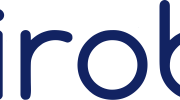




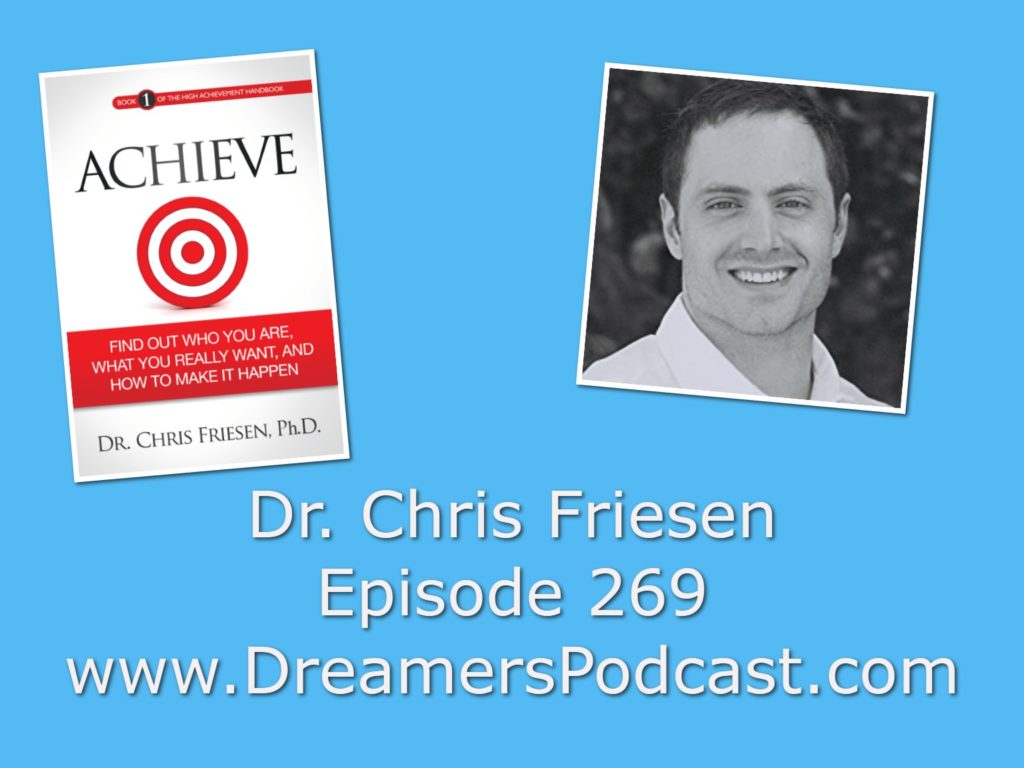



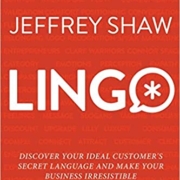
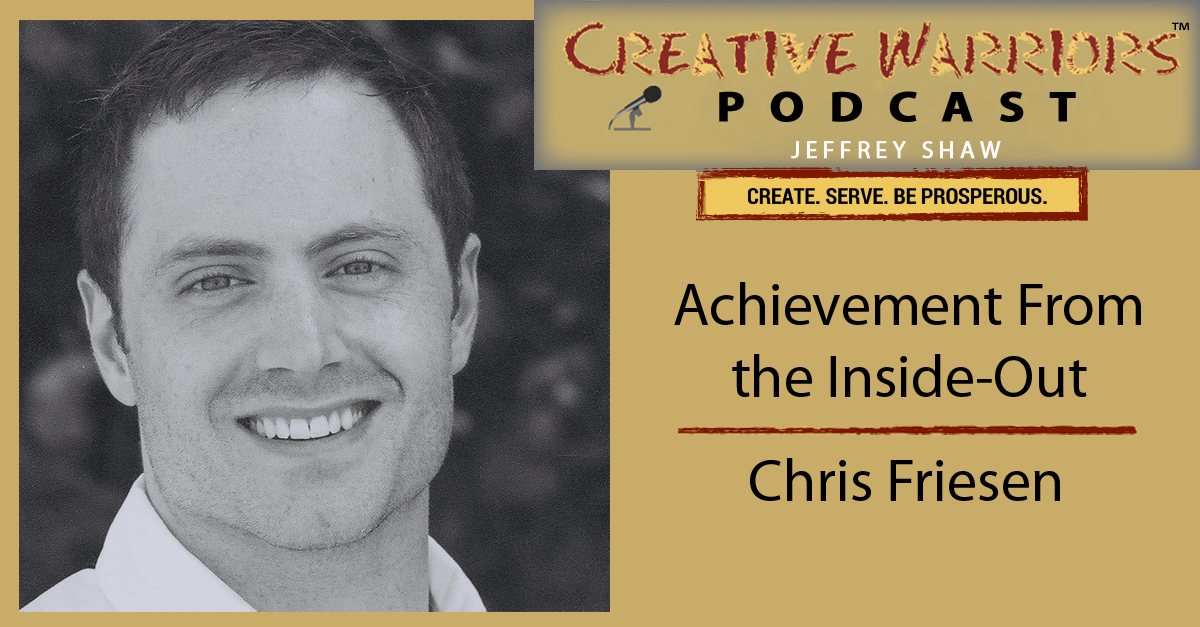
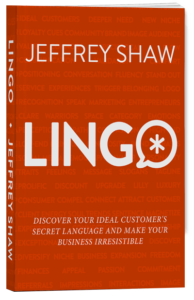



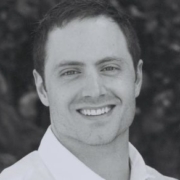
 Dr. Chris Friesen, Ph.D. is a psychologist who has always been fascinated by what makes people successful.
Dr. Chris Friesen, Ph.D. is a psychologist who has always been fascinated by what makes people successful.
